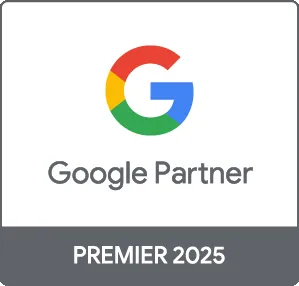When venturing into the landscape of digital marketing, one of the critical metrics to understand is the Average Cost Per Click (CPC). This figure represents how much, on average, an advertiser pays for each click on their ad, making it essential for budgeting and campaign effectiveness. In this guide, we'll break down the elements that influence CPC, explain how to calculate it, and provide tips on optimising your campaigns for better results.
What is Average CPC?
Average CPC is a metric used primarily in pay-per-click (PPC) advertising, like Google Ads. It helps you comprehend how much you’re spending on your advertising might yield in terms of website traffic. The formula for calculating average CPC is straightforward:
Average CPC = Total Cost of Clicks / Total Number of Clicks
Factors Influencing Average CPC
Several key factors can affect your average CPC across your campaigns:
- Quality Score: Google assigns a Quality Score based on relevancy and the quality of your ads, landing pages, and keywords. A higher score can lead to lower CPC.
- Competition: High-demand keywords tend to have higher CPC due to competition among advertisers wanting to bid for those terms.
- Ad Position: The position of your ad can affect how much you pay per click. Ads in higher positions generally have higher CPC due to the increased visibility.
- Geographical Targeting: CPCs can vary based on the audience location you are targeting. Certain regions may have higher demand and, therefore, higher CPCs.
How to Calculate Your Average CPC
To determine your average CPC, follow these steps:
- Gather data on your total cost for clicks from your advertising platform.
- Count the total number of clicks your ad has received during the same period.
- Apply the average CPC formula mentioned earlier to find your average cost.
Tips to Optimize Your Average CPC
Here are some actionable strategies to help lower your CPC and improve overall campaign performance:
- Improve Ad Relevancy: Ensure your ad copy is relevant to the keywords and audience you are targeting.
- Optimize Landing Pages: Provide a seamless user experience on your landing pages that reflects the ad’s promises to increase conversion rates.
- Refine Targeting: Focus on specific audiences or demographics that are more likely to engage with your ads, which can improve your Quality Score.
- Monitor and Adjust Bids: Regularly review your bids and performance metrics to ensure that you are competitive without overspending.
Conclusion
Understanding and managing your Average CPC is crucial for successful digital marketing campaigns. By recognising the factors that influence CPC, calculating it accurately, and applying optimization strategies, you can enhance your advertising efficiency and ROI. If you need assistance with your digital marketing efforts, Prebo Digital offers tailored services to help you achieve your goals. Contact us for a consultation!





